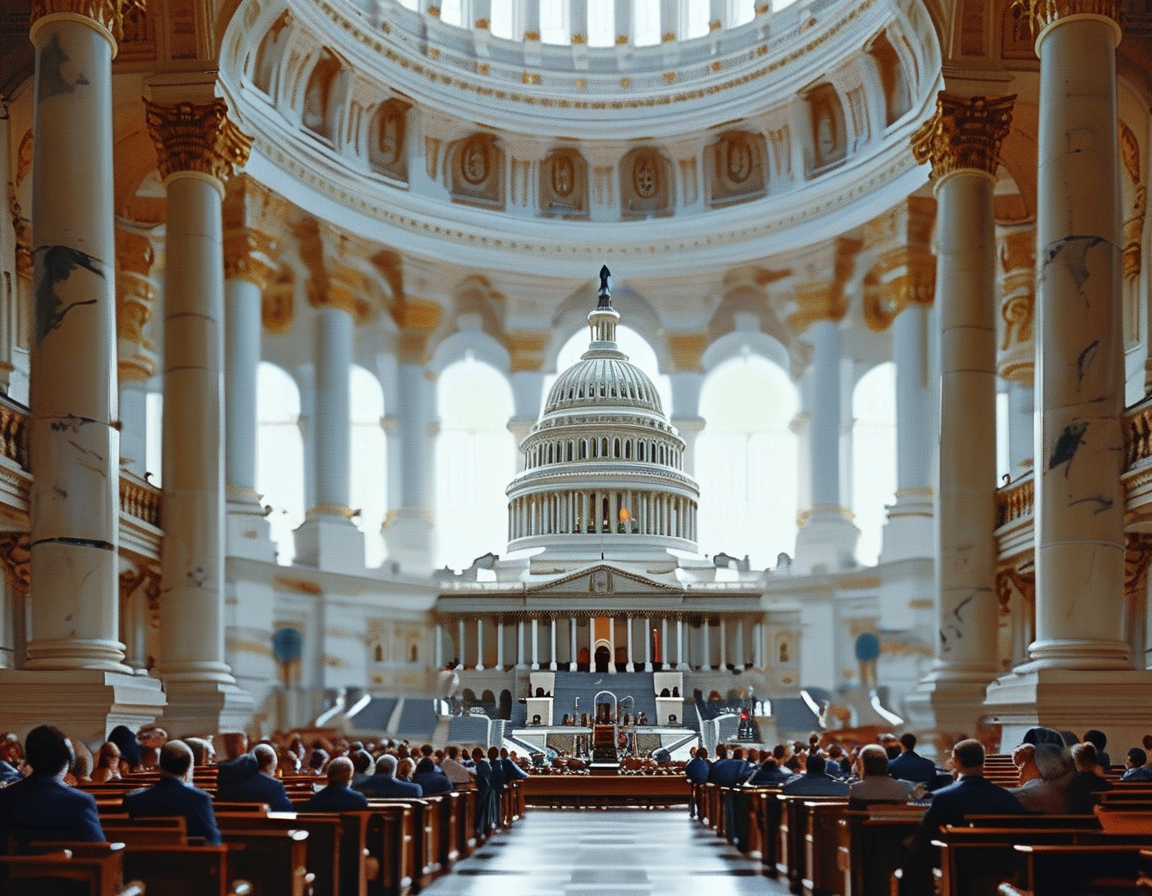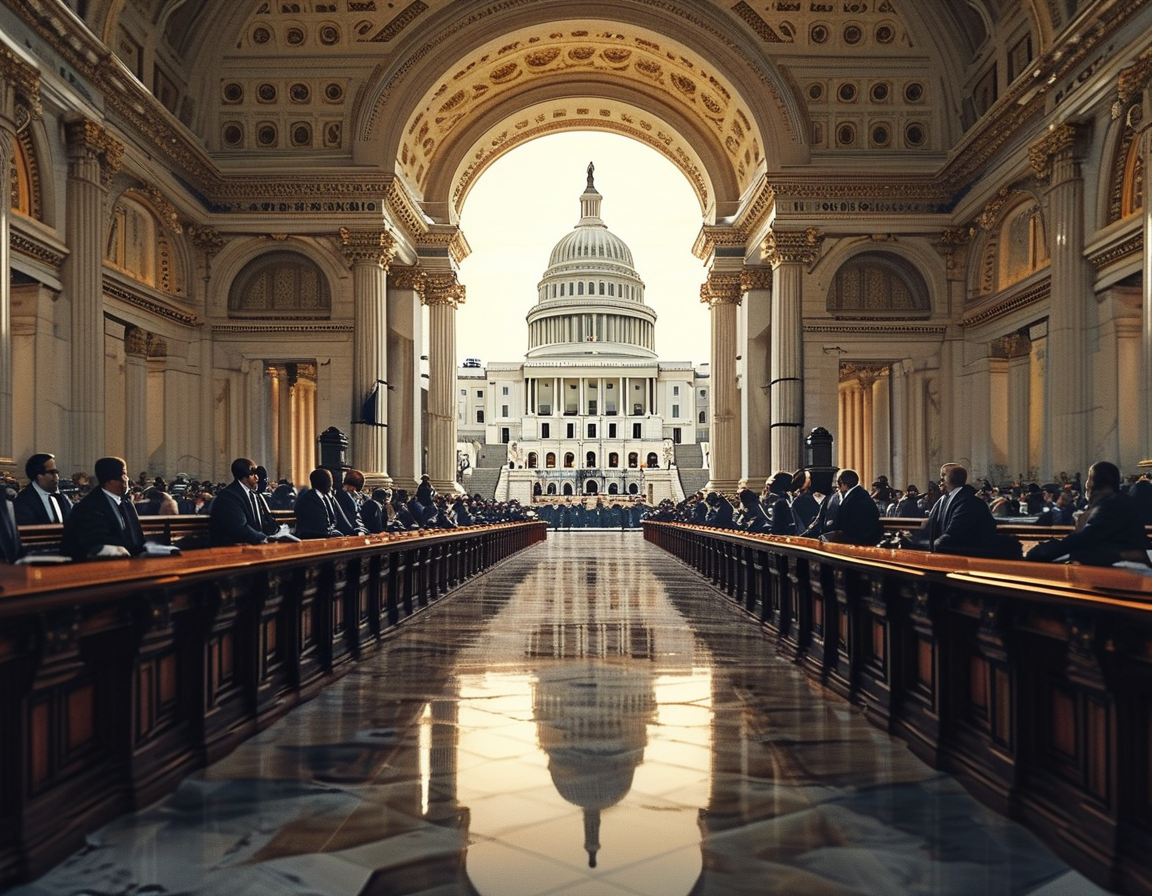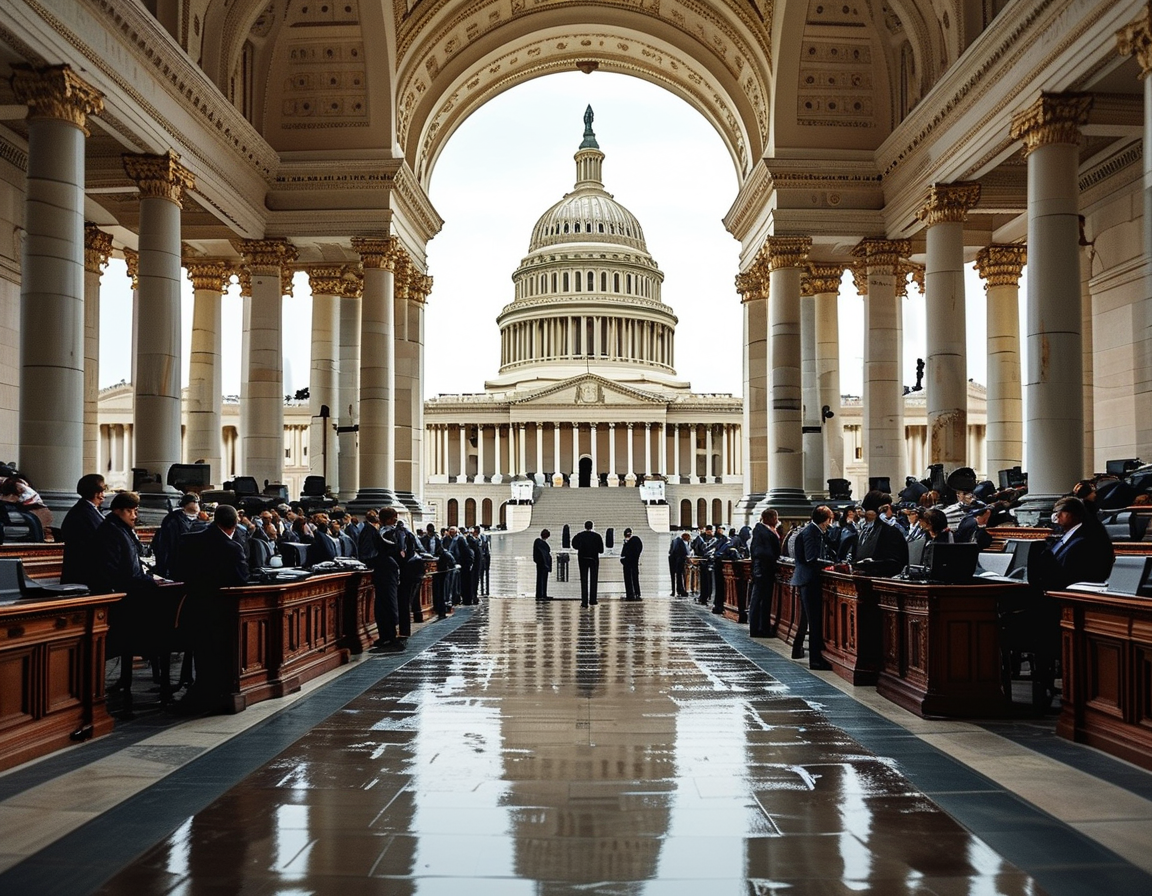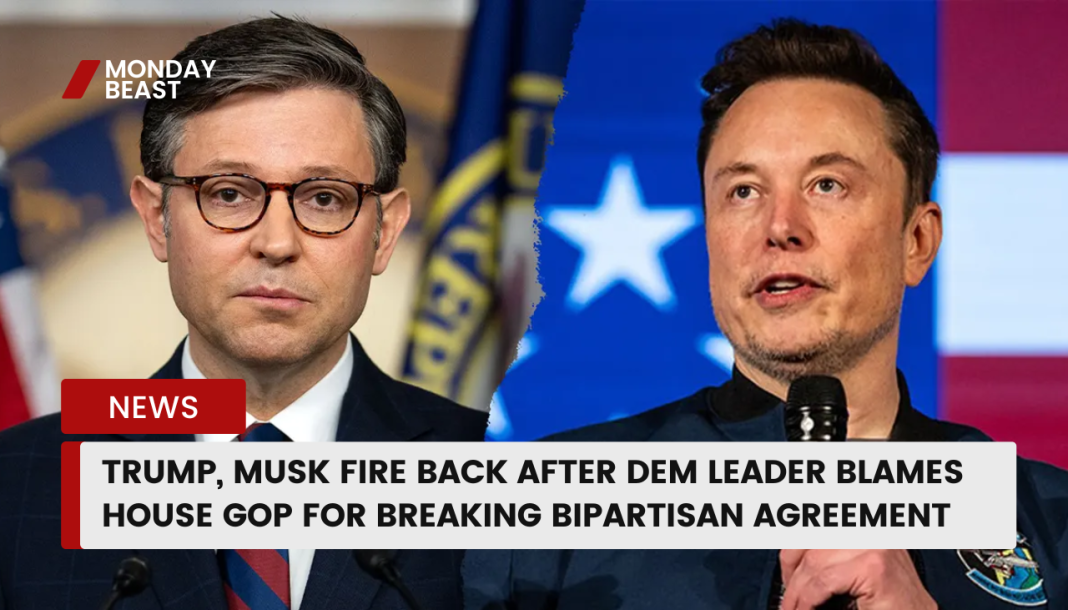In a dramatic turn of events, House Minority Leader Hakeem Jeffries aired grievances over House GOP’s actions. He claimed Republicans broke a critical bipartisan agreement, leading to a possible government shutdown. This deal aimed to preserve funding for essential programs and aid to disaster-stricken Americans.
Jeffries emphasized the stakes at the U.S. Capitol, calling out GOP leaders for failing to uphold their end of this agreement. His words struck a chord. ‘An agreement is an agreement,’ he stated, underscoring the disappointment felt by many.

Musk, no stranger to controversy, swiftly rebutted Jeffries. He used social media to argue the public is not naive. Musk’s words ignited debates about accountability and transparency in government. Are politicians really listening to the needs of everyday Americans?
The mounting frustration from conservatives reveals a deep divide within the GOP. Many Republicans felt blindsided. They’d anticipated a straightforward plan but instead faced a complicated resolution filled with extraneous provisions.
And then there’s Trump. His online rants blasted the bipartisan bill as a trap set by Democrats. He painted a grim picture, warning Republicans of dire political consequences if they supported this deal.

As the clock ticks down to the potential shutdown, questions center on who will be held accountable. Will Democrats use this moment to embarrass Republicans? Or can bipartisanship resurrect itself amid political chaos?
The national debt continues to rise, dwarfing the discussion surrounding the government shutdown. Figures have reached alarming heights. For many, the numbers are alarming and daunting. How will lawmakers address this pressing issue?
Trump’s narratives also encompass broader themes of governance and accountability. His posts resonate with those who feel disillusioned by traditional politics. They reflect an underlying sentiment: a desire for a leadership that prioritizes American citizens.

It’s essential to understand the implications behind the political maneuvers unfolding in Congress. The failure to maintain this bipartisan agreement reveals deeper rifts. Will they find common ground again?
Elon Musk’s commentary also begs a larger question. When and how did public perception morph into a political battleground? His assertion that the public is not dumb spotlights a potent truth about engagement.
Conversations about government funding and disaster relief must return to the forefront. These discussions go beyond the political sphere; they touch the lives of Americans financially affected by potential shutdowns. The personal stakes are immense.
In this charged atmosphere, the lesson here is clear: be attentive. Be aware of your representatives’ actions, and know the consequences they bear on your daily life. The political landscape can feel distant but it directly influences our day to day.
So, what happens next? Can both parties come together in this time of crisis? Or will we watch as the cycle of blame and political football continues, leaving the American people in limbo? As each crisis unfolds, we must remain vigilant and engaged.




